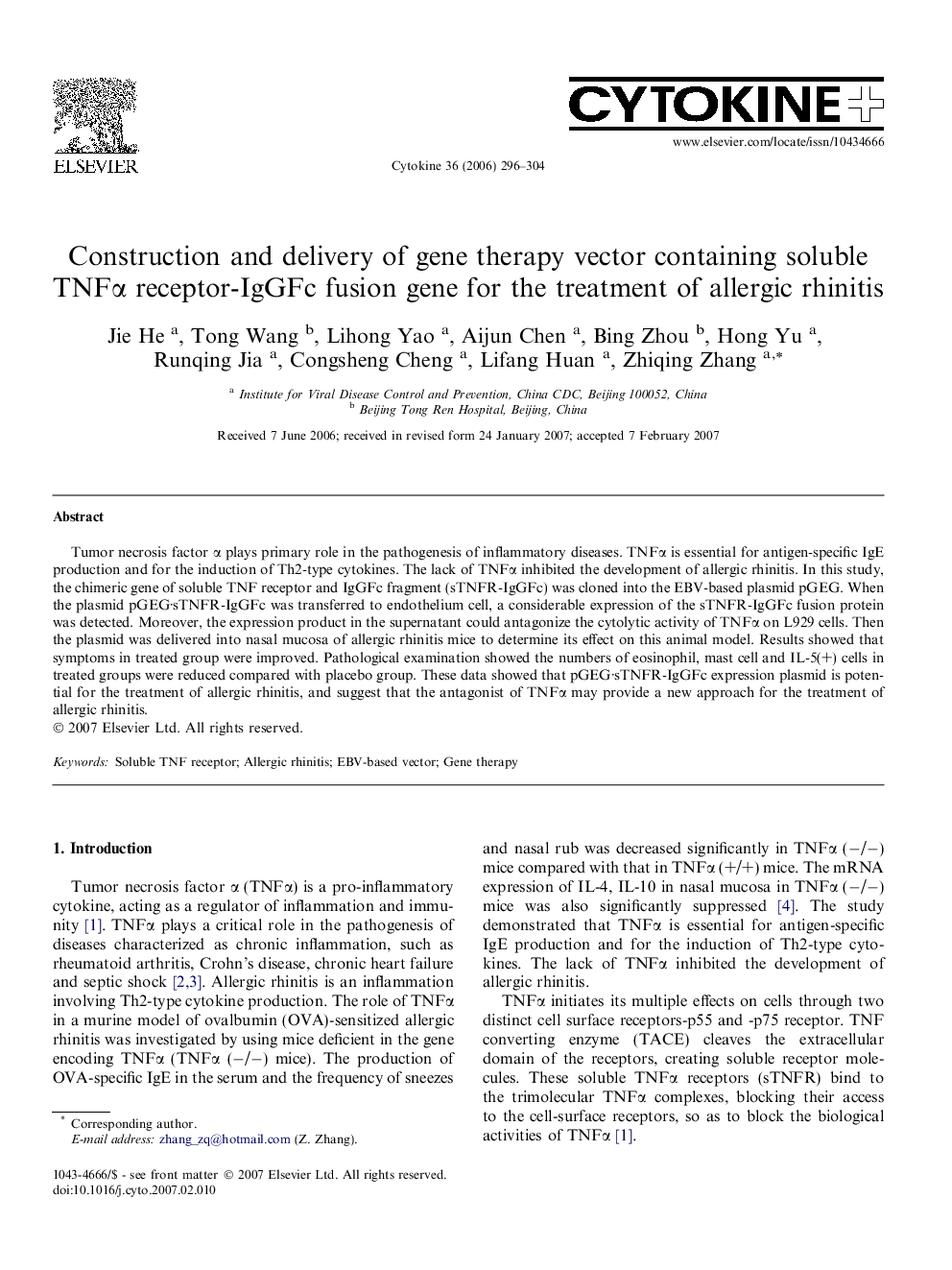| Article ID | Journal | Published Year | Pages | File Type |
|---|---|---|---|---|
| 2795860 | Cytokine | 2006 | 9 Pages |
Abstract
Tumor necrosis factor α plays primary role in the pathogenesis of inflammatory diseases. TNFα is essential for antigen-specific IgE production and for the induction of Th2-type cytokines. The lack of TNFα inhibited the development of allergic rhinitis. In this study, the chimeric gene of soluble TNF receptor and IgGFc fragment (sTNFR-IgGFc) was cloned into the EBV-based plasmid pGEG. When the plasmid pGEG·sTNFR-IgGFc was transferred to endothelium cell, a considerable expression of the sTNFR-IgGFc fusion protein was detected. Moreover, the expression product in the supernatant could antagonize the cytolytic activity of TNFα on L929 cells. Then the plasmid was delivered into nasal mucosa of allergic rhinitis mice to determine its effect on this animal model. Results showed that symptoms in treated group were improved. Pathological examination showed the numbers of eosinophil, mast cell and IL-5(+) cells in treated groups were reduced compared with placebo group. These data showed that pGEG·sTNFR-IgGFc expression plasmid is potential for the treatment of allergic rhinitis, and suggest that the antagonist of TNFα may provide a new approach for the treatment of allergic rhinitis.
Related Topics
Life Sciences
Biochemistry, Genetics and Molecular Biology
Endocrinology
Authors
Jie He, Tong Wang, Lihong Yao, Aijun Chen, Bing Zhou, Hong Yu, Runqing Jia, Congsheng Cheng, Lifang Huan, Zhiqing Zhang,
